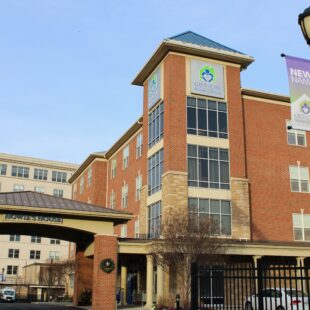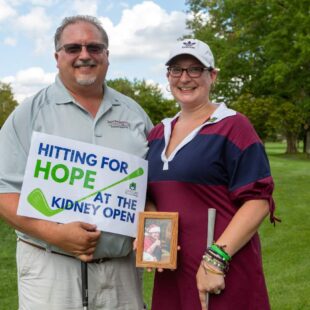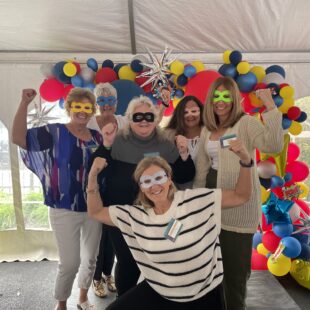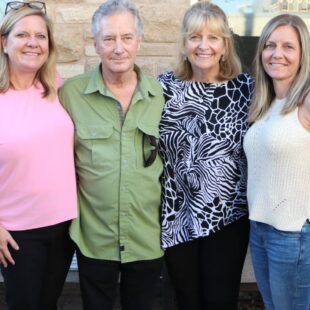Transplant Patients
Past guests Sarita and Mark Felder stayed at the House for many months both before and after Sarita received a life-saving lung transplant. The couple were immensely grateful for the care and support they received during their stay, and wanted to give back to other families like theirs that rely on the House every day.
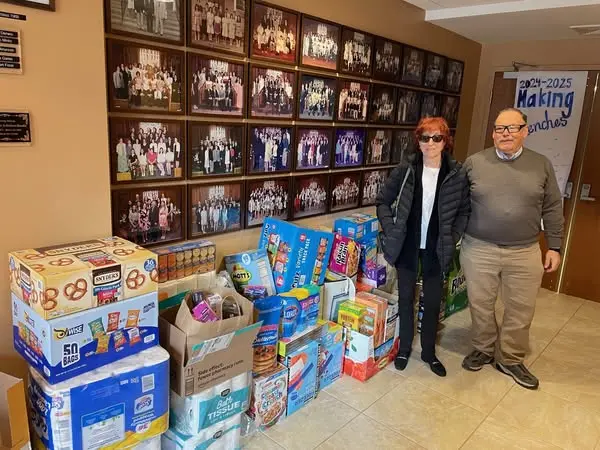
To show their gratitude, Sarita and Mark organized a wish-list drive at their local synagogue to collect much-needed pantry items for the House. Thanks to their community, hundreds of dollars’ worth of wish-list items were donated to stock our pantry!
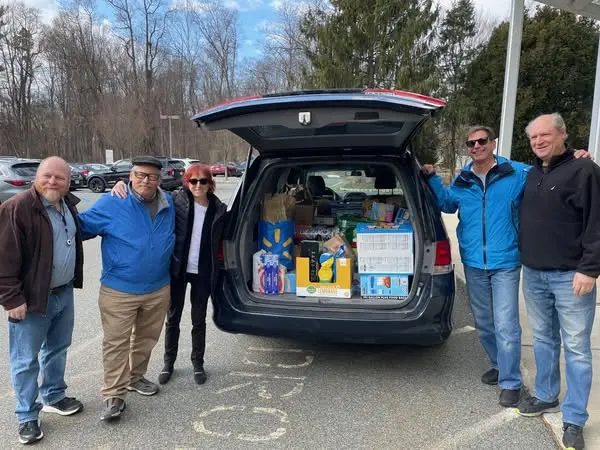
Thank you to Sarita, Mark, and their generous community at Temple Shalom in Succasunna, NJ for your amazing contributions!
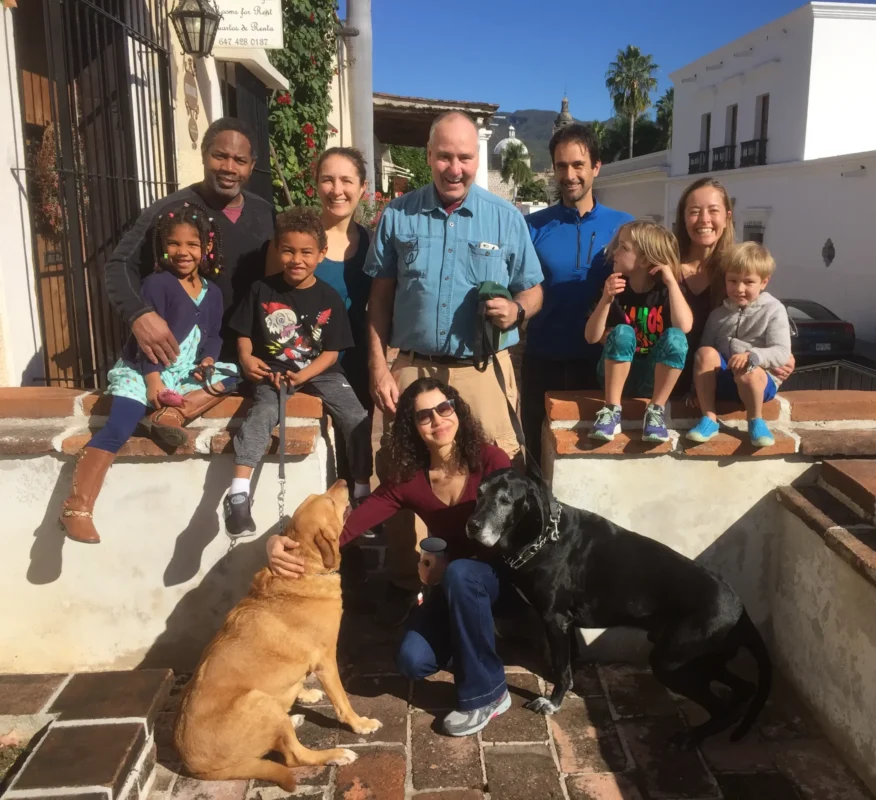
Before arriving at the House, Jim Healy’s journey was filled with many challenges.
Jim’s negative reaction to medication following a knee replacement in 2019 led to him developing pulmonary fibrosis. His worsening condition brought him to Philadelphia to be evaluated for a lung transplant. During that process, the tests revealed he had colorectal cancer, requiring treatment and a period of remission. Jim received treatment for his cancer and was listed for a lung transplant in 2024, 5 years after his initial diagnosis.
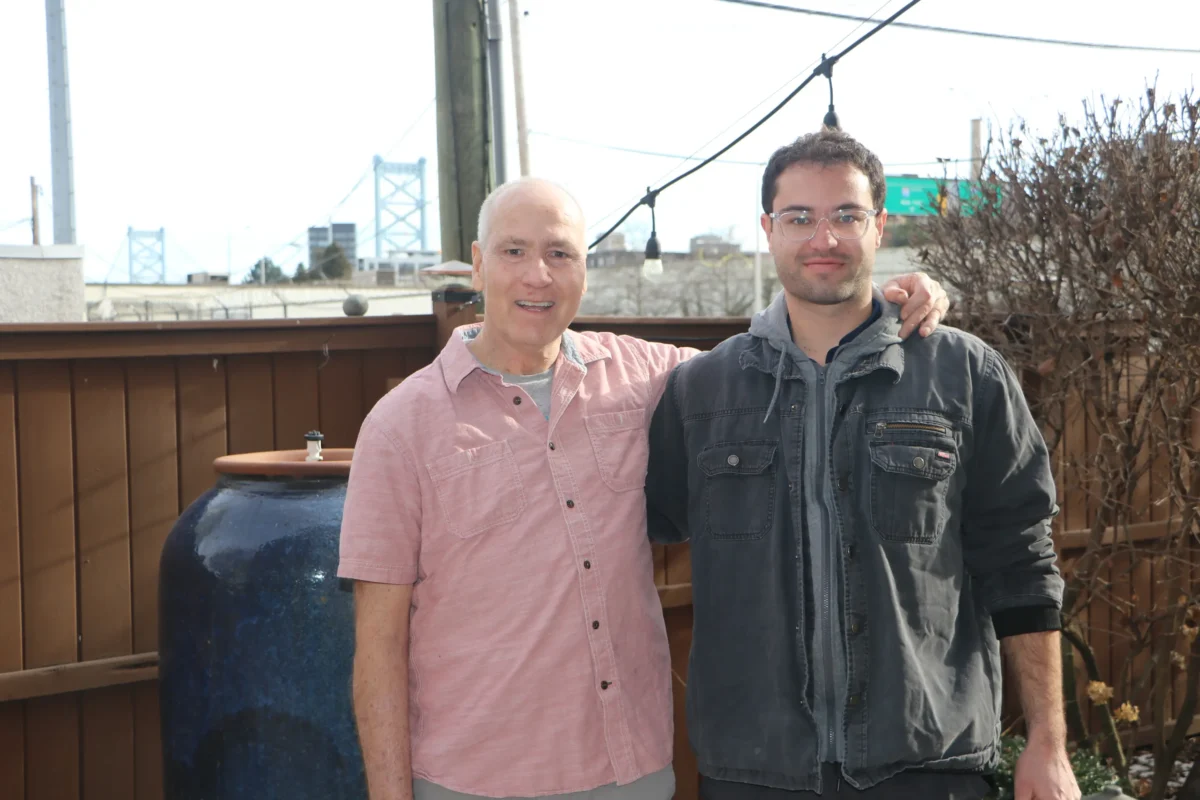
In August of last year, Jim received the call he waited so long for. Unfortunately, his surgery came with severe complications, leaving him hospitalized for nearly 80 days, 65 of which he spent completely immobile.
In October, Jim and Solange left the hospital and came to stay at the House.
“It was wonderful… the House was the perfect transition from the hospital. There were so many people who had lung transplants that I could trade stories with and learn from,” he shares.
“The fact that my wife didn’t have to worry about planning meals and running to the supermarket every day was incredibly helpful for her spirits and her time, and therefore my recovery,” explains Jim. He continues, “She was so busy managing everything. It was so nice to come back from the hospital and be able to relax and then go down for dinner.”
Having access to the kitchen and meals prepared by volunteers made a huge difference during their stay.
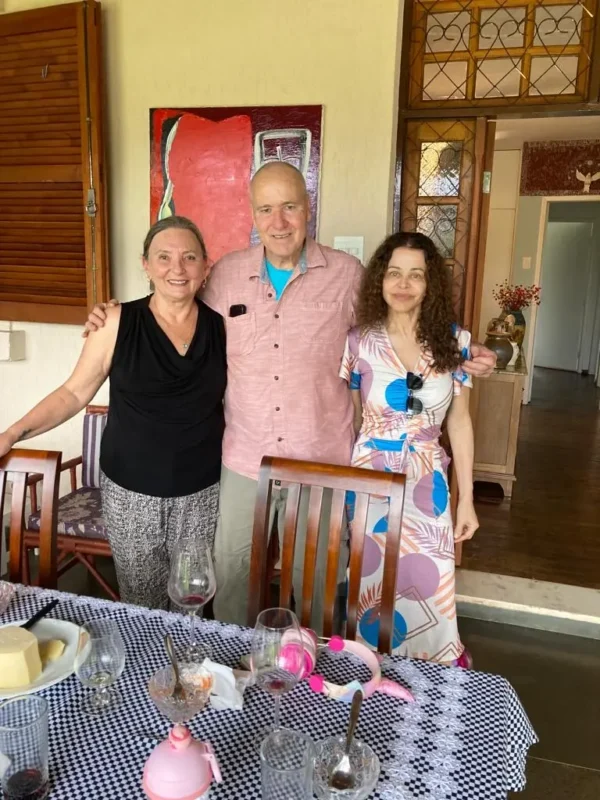
Jim has traveled and lived all over the world – with home bases in Brazil, Mexico, the US – and says that post-transplant he is looking forward to slowing down and spending time with his wife, three children, and five grandchildren.
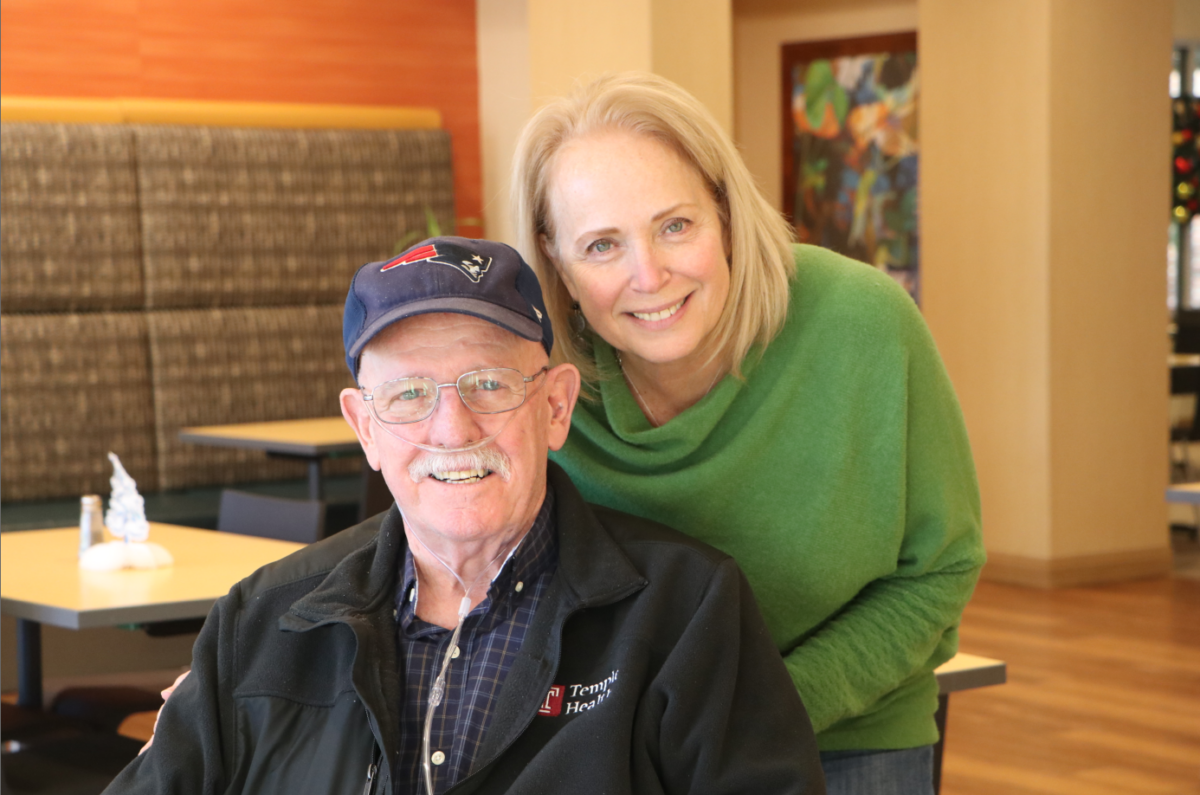
When Jim Hughes was diagnosed with Idiopathic Pulmonary Fibrosis (IPF) in 2023, it came as a shock to him and his family. He was immediately placed on oxygen and told he would need a lung transplant to survive.
Jim and his wife, Louanne, traveled to Philadelphia after local transplant centers in the Boston area turned him down due to his complex medical condition. He was listed for a lung transplant in November of last year and has been staying at the House ever since.
The couple says the House instantly felt like home. “It’s like moving back to the neighborhood you grew up in – the people here are so warm and friendly. It’s really a huge benefit for the psyche and for your own rehabilitation,” Jim explains.
Due to Jim’s condition and a recent diabetes diagnosis, the kitchen at the House has been crucial for Louanne to prepare healthy meals tailored to his needs.
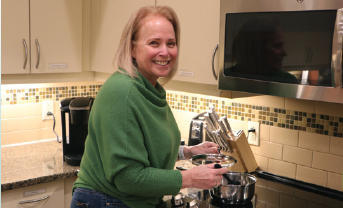
“I can create a diet for him in the kitchen that meets his needs, and that’s truly priceless,” says Louanne.
A talented cook, Louanne depends on the kitchen, cubbies, and her personal fridge space to prepare nearly every meal for both of them.
As Jim’s mobility is limited, the convenience of the kitchen has made all the difference on his journey.
“I can’t get around, and I can’t go to a restaurant. If we were in a hotel room without access to the facilities here, our lifestyle would be completely different,” Jim explains.
An updated kitchen will make it easier for Louanne and Jim to navigate the space, allowing them to spend less time cooking and more time focusing on what matters most: Jim’s care.
“[The kitchen] makes it so I don’t even have to worry about that component, it gives me more time to do other things that I have to do as a caregiver,” Louanne says.
Jim and Louanne also value the knowledge and services they’ve received at the House, which have been vital as they navigate this challenging journey. The couple, who recently celebrated their 41st anniversary, remain hopeful and eager to return home to spend time with their three children and five grandchildren

2024 was a year of milestones, memories, and historic impact for transplant families at Gift of Life Howie’s House.
Despite it being one of our busiest years on record, we never scaled back on our services, never raised our nightly fee, or turned away a family due to financial hardship – all thanks to the support of our community!
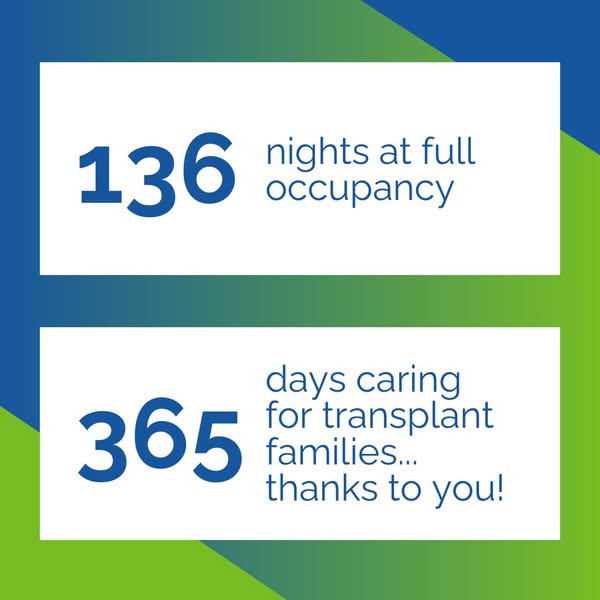
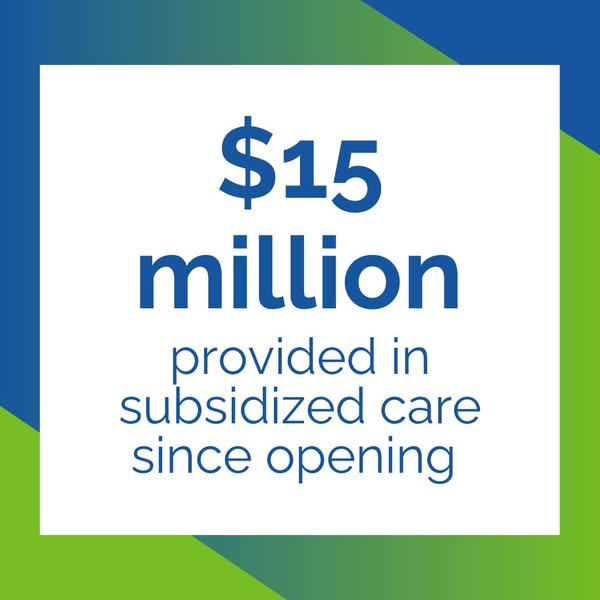
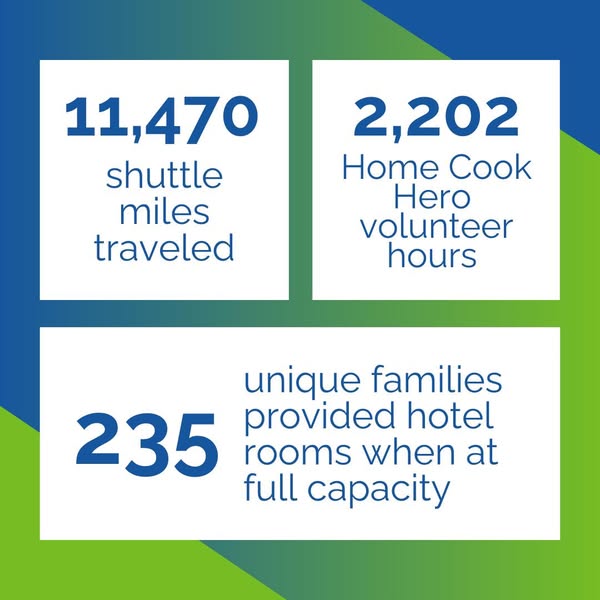
We are so grateful to continue our mission year after year, and look forward to the year ahead!
Check back soon for the full report!
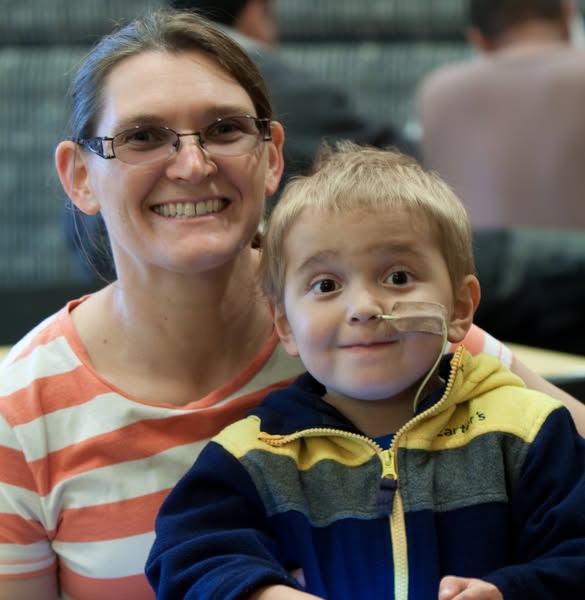
Those who have followed us for a long time might remember Matthew Brown, better known as “Mattman”, who came to stay at the House over 10 years ago when he received his life-saving heart transplant at just 5 years old.
Matt quickly became a House favorite, running around with his Batman cape and larger than life superhero personality. Since his transplant, Matt and his mom Kelly have continued to return to the House for follow-up appointments. Kelly has also stayed connected to mission, most recently through her talent as an artist by participating in our Strokes of Kindness Art Contest!
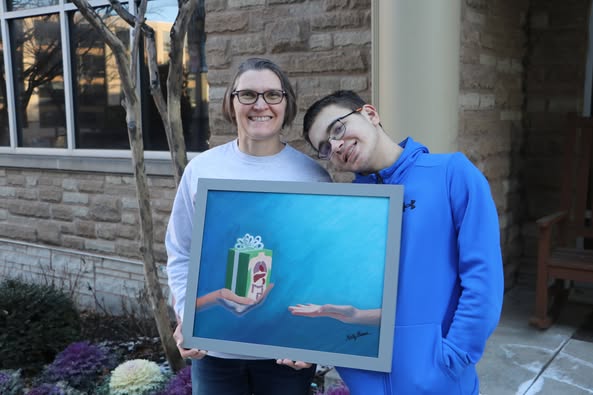
Matt, who is now 15, and Kelly recently came back to the House for a follow-up, and we had the chance to snap a picture with them and Kelly’s beautiful submission to last year’s art contest.
If you’re interested in joining Kelly and participating in this year’s Strokes of Kindness Art Contest, click here to learn more about how you can participate: https://ow.ly/6qRM50UPSGY
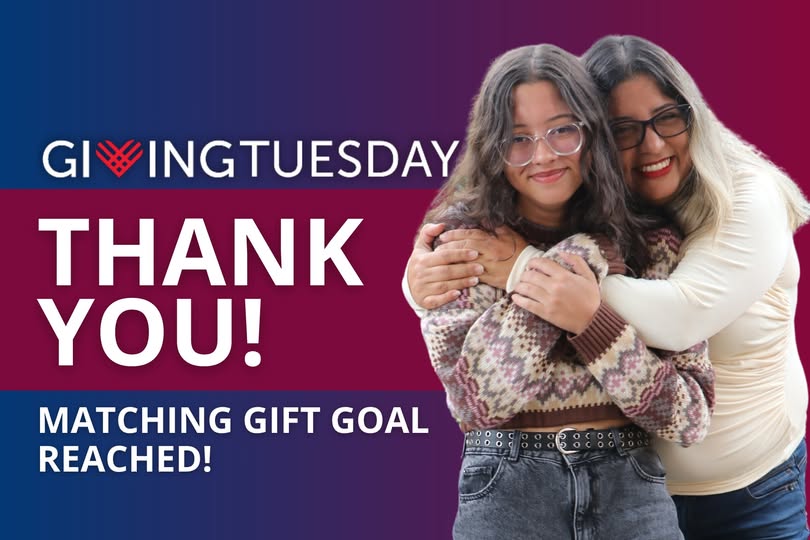
From all of us at the House, THANK YOU!
Thanks to your generosity, we surpassed our goal of $40,000 this Giving Tuesday by $24,000! With the support of our generous matching gift partner, that brings the total Giving Tuesday revenue to a record-breaking $104,000 raised for transplant patients and their families!
This incredible achievement would not have been possible without the dedication and support of our community. Thank you to everyone who made a gift and hosted a fundraiser. Your contributions mean the world to the families who will stay with during the holidays, and throughout the year.
A special thank you to our matching gift partner, the Foxwynd Foundation, funded by their donor advised fund, for helping us double the impact for transplant families!

By Talia Giordano, LCSW
Family Services and Caregiver Lifeline Program Manager
After working with transplant caregivers and families for over 13 years, one theme continues to emerge: transplant caregivers consistently reveal feelings of guilt. Caregivers can often experience guilt from maintaining ones own physical and emotional health, communicating openly with loved ones, and allowing oneself to experience happiness and joy. Such feelings of guilt can weigh heavily, inhibit positive coping mechanisms, and strain relationships.
As one transplant caregiver explained, “I occasionally feel guilt or resentment, not against anyone in particular but against the circumstances. I mourn the loss of what we had planned for the rest of our lives together and the fact that it has been replaced by our new normal. Still, I am grateful that we have the time that we have been given.”
Another caregiver stated, “The pressures of being a caregiver are often overwhelming. Caring for a loved one brings me mental and physical stress and worry of losing them. I have constant thoughts whether I am doing the right things for them. This significantly impacts doing essential things for myself and brings on additional concerns that someday I too will be in the same situation as the person I care for.”
Another type of guilt transplant caregivers may experience is centered around feeling that they should have done things differently.
A third caregiver recalls, “I went through a night of guilt last night, feeling upset and questioning why I didn’t do more. I imagine that if I had made different choices at the beginning, the outcome might have been different.”
Feelings of guilt cannot simply be “turned off” when one is told, “You shouldn’t feel that way.” Emotions such as guilt, sadness, or happiness can be supported and managed through positive coping tools. Instead of discouraging feelings of guilt in caregivers, these feelings should be normalized and validated, helping caregivers feel valued and maintain a sense of self-worth.
Self-care is imperative to managing stress and the burdens associated with caring for a loved one. Schedule self-care into your daily routine, like an appointment to help you feel more accountable. Self-care does not need to be an activity that lasts for hours; it could be a 15-minute walk outside, a 15-minute chair meditation, or a creative art or craft activity. Focus on activities that help you feel replenished – even if it is just for a few minutes.
Receiving support from others in similar situations can also be beneficial for caregivers. By participating in support groups with those who have similar experiences you can feel validated and appreciated for the feelings you are experiencing. You may also learn new tips and tools for navigating the caregiving and transplant process. The Caregiver Lifeline Program offers a virtual transplant caregiver support group twice a month that caregivers can join from anywhere in the world!
Finally, sometimes feelings of guilt, depression, and anxiety may be too overwhelming and cause a negative impact on daily functioning. If this is the case, speaking to a mental health professional is recommended. A mental health professional can work with transplant caregivers in developing and maintaining positive coping tools and long-term emotional wellness.
One transplant caregiver suggests, “…my advice to anyone in the process of receiving a donation [transplant] is make sure the patient and caregiver have counseling/psychiatric support before and after.”
To talk with a social worker about resources and support around caregiver guilt, emotional wellness, or support groups, please reach out to Talia Giordano, LCSW at caregiverlifeline@giftoflifefamilyhouse.org.

The Caregiver Lifeline Program is supported in part by TD Charitable Foundation. We are thankful for their partnership and generosity.
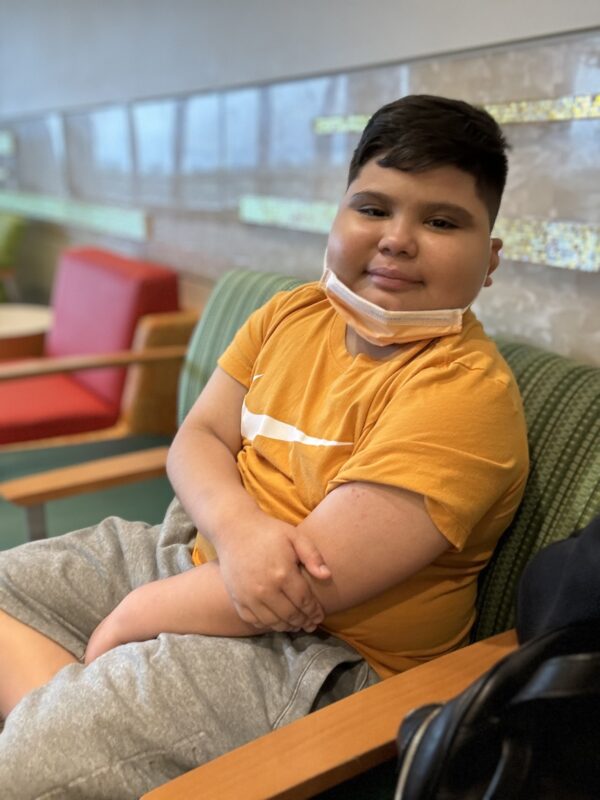
Anthony Rojas was born a healthy child in Long Island, New York. Around the age of 3 he unfortunately developed Bronchiolitis obliterans, a severe lung disease, after contracting two different viruses.
As his symptoms worsened he was transferred to a nursing facility in New York. His doctors suggested he see a pulmonologist at The Children’s Hospital of Philadelphia (CHOP) and his family began traveling to Philadelphia for his primary care.
As his symptoms worsened he was transferred to a nursing facility in New York. His doctors suggested he see a pulmonologist at The Children’s Hospital of Philadelphia (CHOP) and his family began traveling to Philadelphia for his primary care.
He was listed for a lung transplant at 4½ years old but was removed from the list after a year when his health stabilized. Despite this, he continued to get sick often and required constant hospital stays, once even traveling by helicopter to Philadelphia for emergency care.
“We basically lived in the hospitals,” his mom, Lucy, said.
Anthony remained at the nursing facility until he was 8 years old. In July of 2022 he was relisted for a transplant after his lung function declined. After two years of waiting, Anthony received his life-saving lung transplant in June of this year.
EASING THEIR STRESS
Anthony’s mom Lucy learned about Gift of Life Howie’s House when he was first listed for a lung transplant. When Lucy arrived, she was alone and unsure of what to expect.
“You walk in not knowing anyone or what to expect. On top of that you’re thinking about the transplant, recovery and appointments…
… but as soon as you arrive, everyone greets you, welcomes you and makes you feel comfortable,” Lucy explains.
Before discovering the House, the family would leave New York early in the morning to make Anthony’s appointments in Philadelphia and drive back the same day. If Anthony had to stay overnight, they would need to find a hotel, which would add to their emotional and financial stress.
Because of the House, Lucy and her family had an affordable, comfortable place to call home surrounded by people who understood their journey. “It was a huge relief… seeing others with a common problem and who have been through something similar makes you feel safer and more protected,” Lucy says.
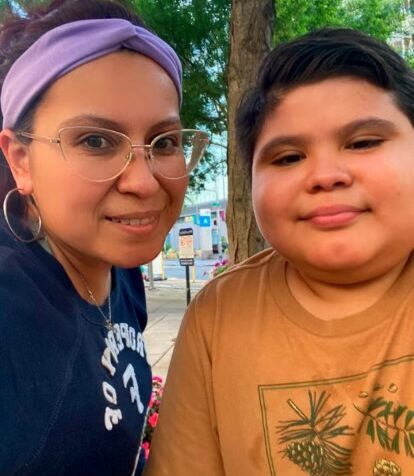
A SECOND CHANCE AT LIFE
After spending more than half of his life in the hospital, 10-year-old Anthony finally returned home this past August. Although he remained positive throughout his journey, Anthony is excited to enjoy normal kid activities without the burden of his oxygen.
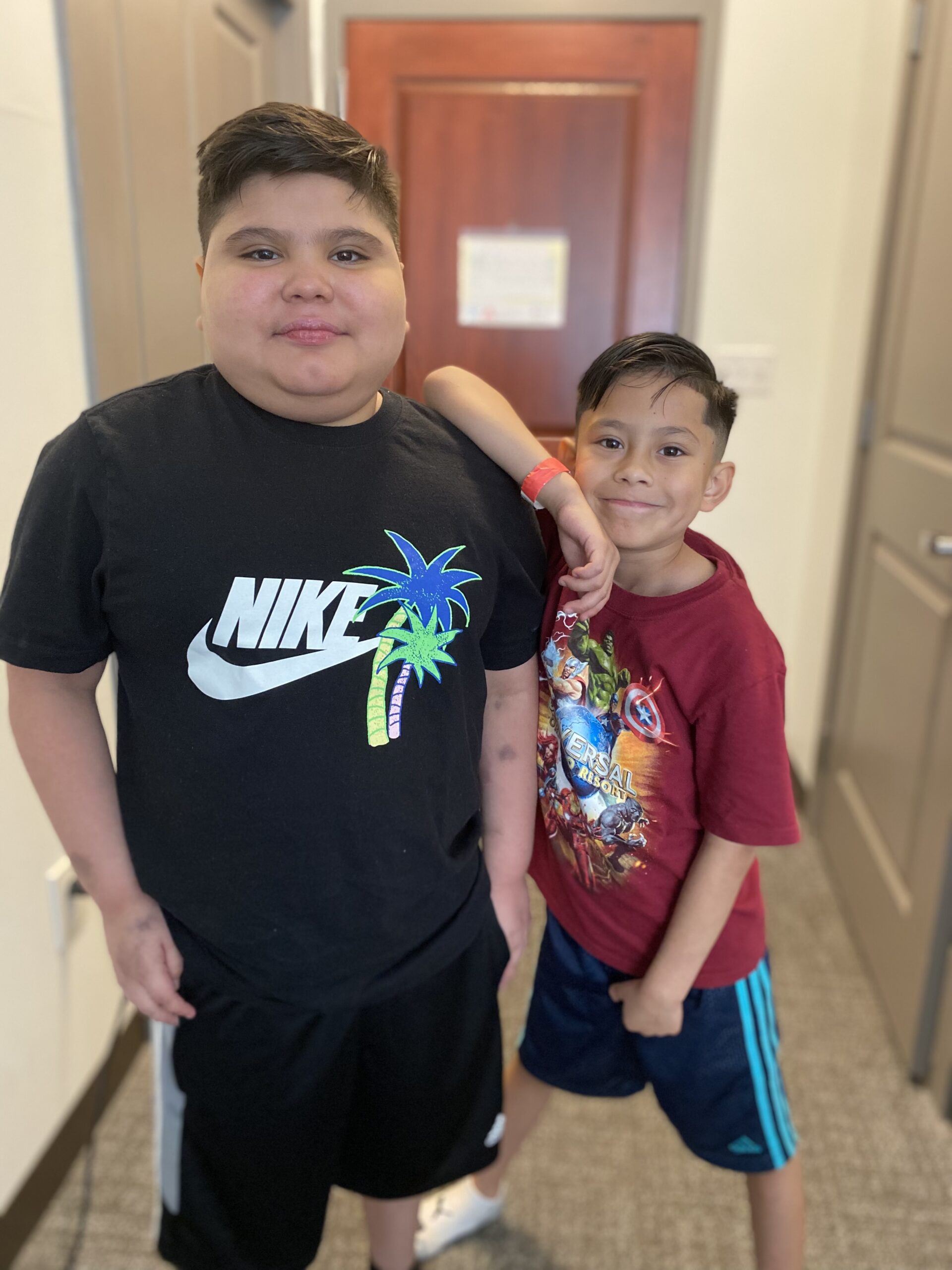
Upon arriving home Anthony jumped into playing soccer and other games with his younger brother, Dylan. He also enjoys playing the piano which helped him through the most difficult times in the hospital. Lucy says that watching his growth and strength throughout his journey has been inspiring.
“If he is strong it means I have to be stronger,” she emphasizes. Lucy is also looking forward to the holidays. This will be the first time in years her family can celebrate without worrying about Anthony’s oxygen needs. Most importantly she expresses her gratitude to the House and its staff for helping her family throughout their journey.
This year numerous families will stay at the House over the holidays, and we need your help to ensure they are provided with affordable lodging, meals and important services during the transplant journey.
“I am thankful that I was introduced to the House. It’s a wonderful, peaceful and welcoming environment,
and has been a great help,”
Every gift regardless of its size will mean the world to these families. Knowing they have a community of support behind them will bring much-needed hope during their darkest times. Your gift today will help keep the fees low by bridging the gap between the modest nightly fee of $40 and the actual cost of providing services, which now exceeds $200.
For families like Anthony’s, the House is an essential part of their path back home. Help continue to support their journey and many others by making a gift today.
If you can offer a special gift of $250 or more, you’ll also become a cherished member of the Family Circle.
Interested in supporting our Adopt-A-Family Program?
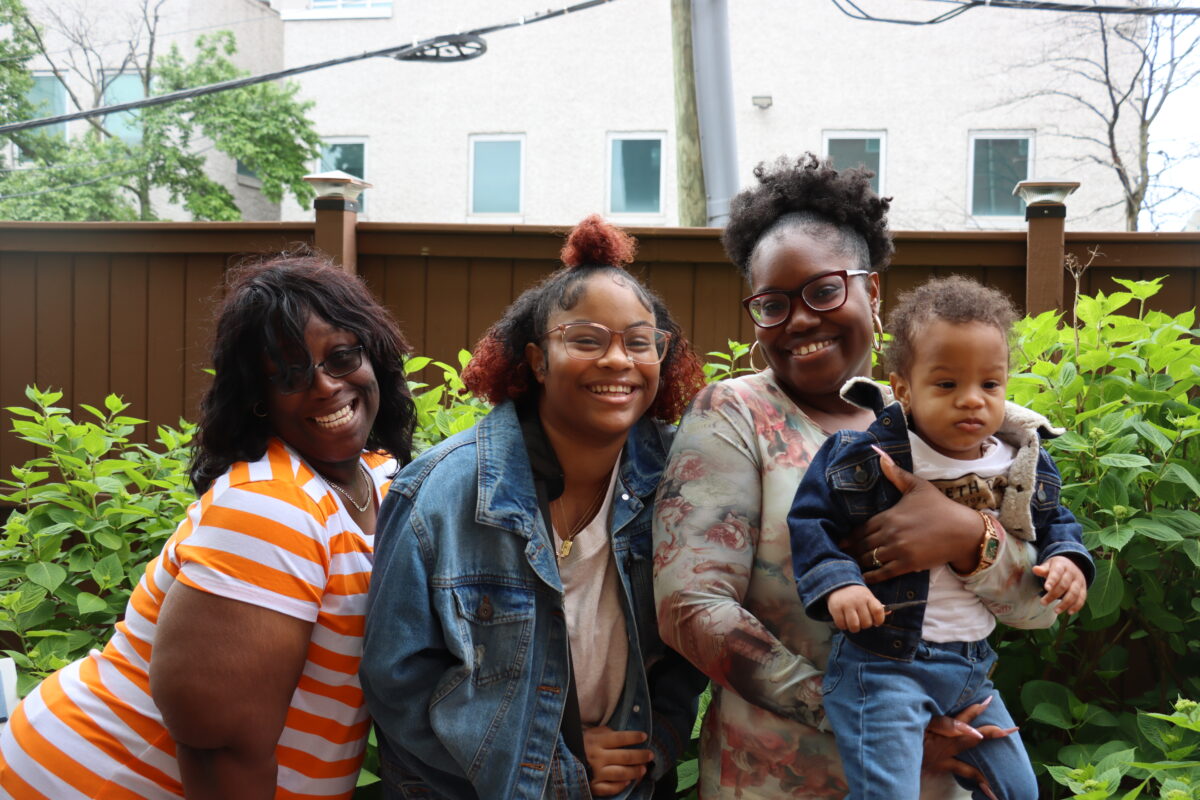
Philadelphia’s seven transplant centers draw patients from across the country. Along with them come families uprooted from their homes. There’s a special place where many stay called Howie’s House.
Gina Adams and her daughter Kemiyah of Harrisburg, Pa., were recent guests. They told us how their transplant journey started in Harrisburg.
“I was in my room, Kemiyah recalls.
She was listening to music the day before Thanksgiving, when out of the blue…
“I remember kind of like falling, like off of the bed,” she says.
“She was lying on the floor, crying,” Gina says.
“The words that’s coming out of her mouth just doesn’t make sense,” she explains.
Gina didn’t know till the next day at a hospital that her 15-year-old daughter was having a stroke.
“There was a blood clot on her brain,” she says of her surprise looking at her daughter’s CT scan.
A clot brought on by heart failure.
Within hours, Gina, Kemiyah, and brother Kane left Harrisburg for Children’s Hospital, where doctors said Kemiyah needed a new heart. For Gina, 100 miles from home, Howie’s House became an oasis. It’s the brainchild, and named after, former Gift of Life CEO Howard Nathan, inspired by out-of-town families he and his mother met when his sister got a liver transplant.
“That struck me at that moment, that part of the transplant process is that families have to be cared for,” says the Howie’s House founder.
“In general, hospitals don’t have hospitality for family members,” he adds.
Since opening in 2011, Howie’s House has provided 100,000 nights for families awaiting transplants or follow-up visits.
“We’re thankful for them because we’re able to have something to eat every day and somewhere to sleep,” Gina says.
Dinners are made by the Home Cook Heroes.
“Every night at 6 o’clock, there is a home-cooked meal by volunteers in our great kitchen,” Nathan says.
Transplant families meet, share stories, and support each other there. There’s also an exercise room, a game room, and organized activities. Now back in Harrisburg with a new heart, Kemiyah made a happy return to high school. “Without that gift she wouldn’t be able to attend school,” Gina says gratefully. Howie’s House is full almost every night, so someday it may have to be expanded. But right now, the Gift of Life is focused on new organ donors.
If you haven’t signed up as a donor, it only takes a few minutes.
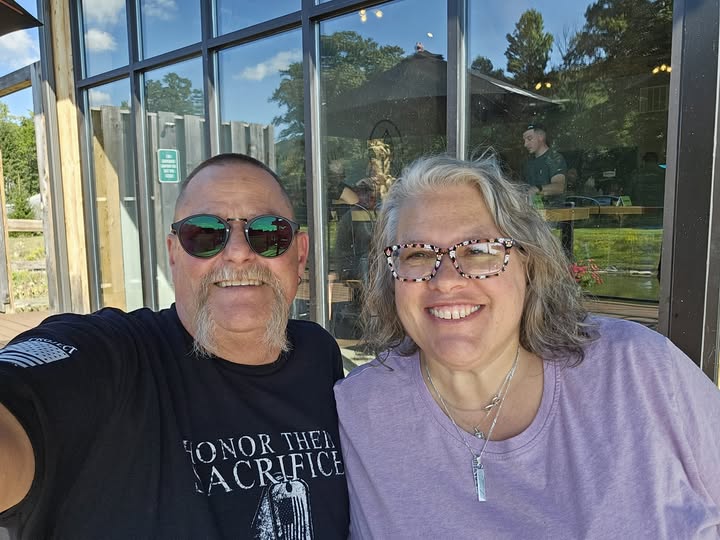
As we wrap up #NationalCaregiversMonth, we’d like to continue the theme of giving thanks by sharing this heartwarming quote from Dana Nelson, a past guest and transplant recipient, about his wife and caregiver, Donna.
“Donna is very important to my transplant journey; she keeps me grounded and focused. She puts up with my mood swings, comforts me when I’m feeling down, she handles problems with insurance, and makes sure I keep my appointments straight. We have been married for almost 25 years, and we never thought our lives would change in an instant. She has been strong and courageous throughout this whole rollercoaster of a ride. I wouldn’t want anyone else by my side, she’s the best.”
Please shout-out a special caregiver below to show them how thankful you are!
News & Events
Stay Connected
Sign up to receive email updates featuring transplant stories of hope and ways you can get involved with the Howie's House.
"*" indicates required fields


